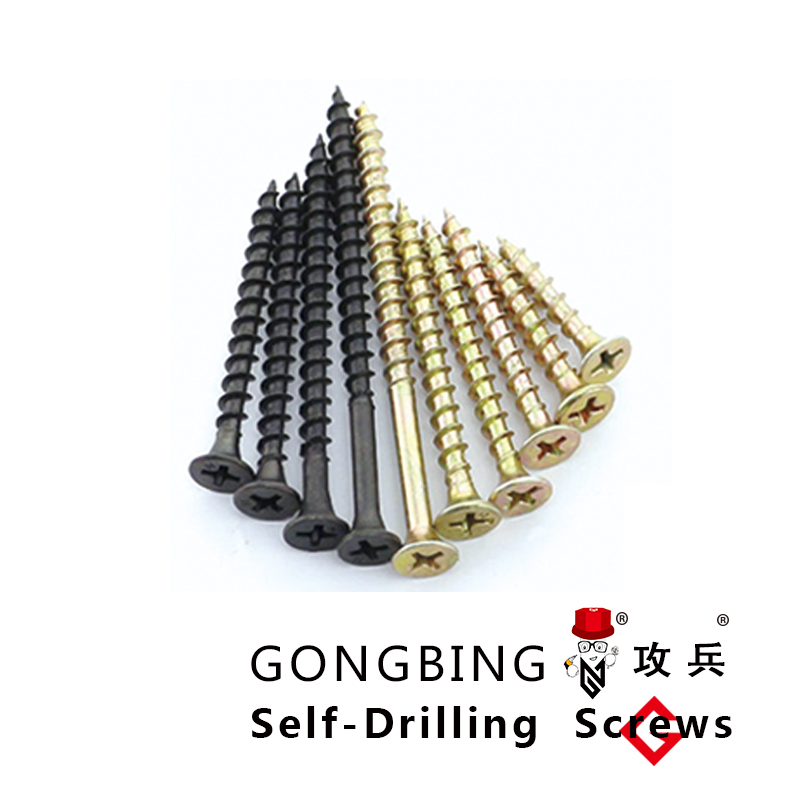wafer screws
Understanding Wafer Screws An Essential Component in Modern Technology
Wafer screws, a term not widely recognized outside of specific engineering and manufacturing circles, represent a crucial fastening technology used in a myriad of applications. From electronics to general construction, wafer screws provide integrity and durability in structural applications, making them indispensable in our modern world.
What Are Wafer Screws?
Wafer screws are characterized by their large, flat heads and distinct thread design, which facilitate secure fastening without the risk of stripping or damaging softer substrates such as plastic or composite materials. They typically feature a flat washer-like head, allowing for a larger contact area than traditional screw heads. This design minimizes the surface pressure on the material being fastened, making wafer screws particularly effective for applications where panel deformation cannot be tolerated.
Made from a variety of materials, including stainless steel, carbon steel, and various alloys, wafer screws are often coated or treated to enhance resistance against corrosion and wear. This is essential, especially in outdoor or industrial applications where exposure to the elements can degrade the integrity of standard screws.
Applications of Wafer Screws
Wafer screws find applications across multiple industries, prominently in electronics, automotive manufacturing, and general construction.
1. Electronics In the manufacturing of electronic devices, components are often assembled using wafer screws due to their ability to secure delicate circuitry without imposing significant pressure. For instance, they are frequently used to attach circuit boards to chassis, ensuring that every part remains securely in place, which is critical for device functionality.
2. Automotive Industry The automotive sector employs wafer screws in various assemblies, including interior components and exterior body panels. The unique design helps in protecting the integrity of lightweight materials frequently used in modern vehicles, such as plastics and composites. Moreover, their ability to distribute load evenly helps prevent loosening over time, ensuring that critical components remain secure.
wafer screws

3. Construction In the construction industry, wafer screws are essential for fastening together pre-fabricated structures and panels. Their design enables them to be used effectively with various building materials, including wood, metal, and concrete, providing robust solutions for securing beams, frames, and insulation materials.
Advantages of Wafer Screws
One significant advantage of using wafer screws is their ease of installation. The large head allows for the use of a wide range of driving tools, including powered screwdrivers and manual tools. Their design also reduces the likelihood of cam-out, a common issue where the screwdriver slips out of the screw head under torque, leading to difficulties during installation.
Furthermore, due to their flat head and larger bearing surface, wafer screws can counteract issues related to vibration and thermal expansion. In dynamic environments where components may shift, the broad interface significantly enhances holding power, reducing the likelihood of fastener failure over time.
Choosing the Right Wafer Screw
When selecting wafer screws, it is essential to consider several factors such as material, coating, size, and drive type. For example, choosing stainless steel wafers is ideal for outdoor applications due to their superior corrosion resistance. In contrast, zinc-coated screws may be more suited for indoor applications where moisture is not a concern.
Additionally, the choice of drive type (Phillips, Torx, etc.) can impact installation efficiency and overall performance. Torx drives, which feature a star-shaped pattern, are designed to resist cam-out better than traditional slotted or Phillips screws, making them a popular choice for applications requiring high torque.
Conclusion
Wafer screws are more than just simple fasteners; they are a vital component of modern manufacturing and engineering that ensures the integrity and durability of products across various industries. With their unique design and versatile applications, wafer screws continue to play a pivotal role in the advancement of technology, enabling the creation of robust and reliable systems in an ever-evolving landscape. As industries grow and new materials become available, the significance of wafer screws will only increase, cementing their place in the toolkit of engineers and manufacturers worldwide.
-
Weatherproof Plastic Expansion Anchors for OutdoorخەۋەرلەرJun.06,2025
-
Sustainability in the Supply Chain: Eco-Friendly TEK Screws ProductionخەۋەرلەرJun.06,2025
-
Load-Bearing Capacity of External Insulation FixingsخەۋەرلەرJun.06,2025
-
Double Head Bolts: Enhancing Efficiency in Industrial MachineryخەۋەرلەرJun.06,2025
-
Corrosion Resistance in Chipboard Screws: Coatings for Wholesale DurabilityخەۋەرلەرJun.06,2025
-
Butterfly Toggle Bolts : Enhancing Structural ResilienceخەۋەرلەرJun.06,2025
